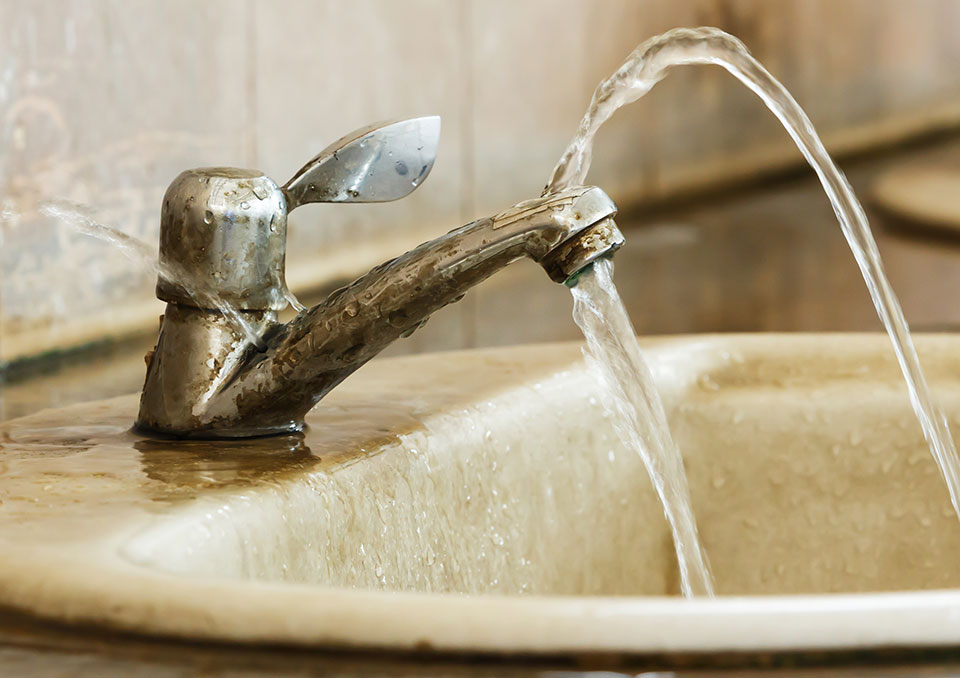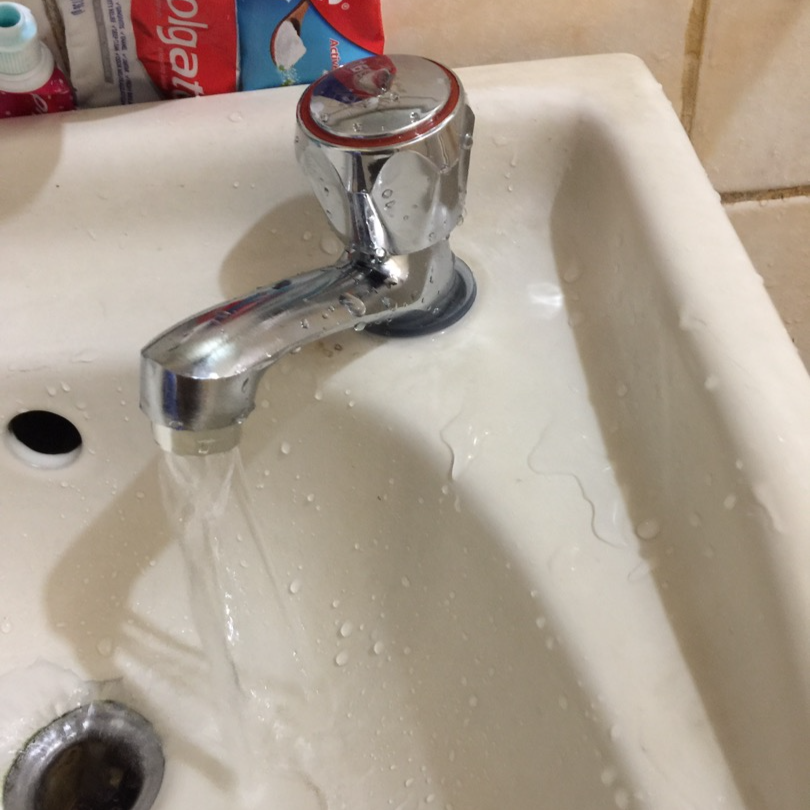Uncovering the Relevance of Resolving a Leaking Faucet
Uncovering the Relevance of Resolving a Leaking Faucet
Blog Article
The article in the next paragraphs relating to Leaky Faucets: Why They Happen & What to Do About Them is exceptionally informative. Don't overlook it.

Dripping taps may look like a small aggravation, but their effect goes beyond simply the aggravation of the sound. From drainage to sustaining unneeded monetary expenses and wellness threats, disregarding a dripping tap can cause different consequences. In this post, we'll look into why it's essential to resolve this usual house issue promptly and successfully.
Wastage of Water
Ecological Impact
Dripping faucets contribute considerably to water waste. According to the Epa (EPA), a solitary tap trickling at one drip per secondly can lose greater than 3,000 gallons of water per year. This not just stress water resources yet likewise impacts ecosystems and wild animals depending on them.
Step-by-Step Guide to Dealing With a Dripping Tap
Tools Called for
Before attempting to take care of a trickling tap, gather the needed devices, including an adjustable wrench, screwdrivers, replacement parts (such as washers or cartridges), and plumber's tape.
Usual Faucet Issues and Their Solutions
Recognize the type of tap and the certain issue causing the drip. Typical problems consist of damaged washers, corroded shutoff seats, or faulty O-rings. Refer to manufacturer instructions or on the internet tutorials for step-by-step advice on repair services.
Financial Expenses
Boosted Water Costs
Past the environmental impact, dripping faucets can blow up water bills significantly. The built up waste over time equates right into greater energy costs, which might have been stayed clear of with prompt repair work.
Prospective Residential Or Commercial Property Damages
Furthermore, long term dripping can cause harm to components and surfaces bordering the faucet. Water buildup can cause staining, corrosion, and also structural problems if left ignored, leading to extra fixing prices.
Wellness Issues
Mold And Mildew and Mildew Growth
The continuous presence of moisture from a leaking tap creates an ideal environment for mold and mildew and mildew development. These fungis not just compromise indoor air high quality however additionally pose health and wellness dangers, specifically for individuals with breathing problems or allergic reactions.
Waterborne Illness
Stationary water in leaking faucets can come to be a breeding place for germs and various other virus, enhancing the danger of waterborne conditions. Contaminants such as Legionella microorganisms flourish in stationary water, possibly bring about severe health problems when consumed or inhaled.
Do it yourself vs. Professional Repair work
Advantages and disadvantages of Do It Yourself Repair
While some may try to take care of a dripping tap themselves, do it yourself repairs come with their very own collection of obstacles. Without proper understanding and tools, DIY efforts can worsen the problem or bring about insufficient repairs, extending the problem.
Benefits of Employing an Expert Plumber
Working with a specialist plumber makes sure that the underlying root cause of the trickling tap is resolved successfully. Plumbers have the expertise and tools to detect and fix tap concerns successfully, saving time and lessening the threat of more damage.
Ecological Obligation
Private Payment to Conservation
Taking responsibility for repairing trickling taps straightens with more comprehensive efforts toward water preservation and environmental sustainability. Every individual's activities jointly make a substantial impact on maintaining valuable sources.
Lasting Living Practices
By focusing on punctual repair work and embracing water-saving habits, people add to sustainable living methods that profit both existing and future generations.
Preventive Measures
Regular Maintenance Tips
To prevent dripping taps, carry out routine upkeep such as cleaning up aerators, examining for leakages, and changing worn-out parts quickly. In addition, take into consideration setting up water-saving devices or updating to more effective components.
Relevance of Prompt Fixes
Dealing with trickling taps as quickly as they're observed avoids more water waste and possible damage, inevitably conserving both water and cash over time.
Influence On Home Value
Understanding of Well-Maintained Home
Preserving a residential property in good condition, including resolving maintenance issues like trickling faucets, boosts its perceived value and desirability among potential buyers or occupants.
Impact on Resale Value
Characteristics with well-kept plumbing components, consisting of faucets, command greater resale worths in the property market. Dealing with leaking taps can add to a favorable perception during home inspections and arrangements.
Conclusion
Dealing with a dripping tap exceeds simple ease; it's a vital action towards saving water, lowering economic costs, and securing health and residential property. Whether via do it yourself fixings or expert support, taking action to deal with leaking faucets is a little yet impactful means to advertise liable stewardship of resources and add to a much healthier, extra sustainable future.
How to Fix a Leaky Faucet: Step-by-Step Repair Guide
A leaky faucet may seem like a simple annoyance, but if it's not fixed promptly, that leak could cost hundreds to potentially thousands. From water damage to mold, mildew, and high water bills, even a tiny leak can be catastrophic if left unattended. Damage like this can even affect the overall value of your home, so it's important to take the right approach for leaky faucet repair. You may need the help of a plumber in some cases, but we've got a few tips you can try on how to fix a leaky faucet before calling the pros.
Four Faucet Types
When you're learning how to fix a leaky faucet, the first step is knowing what kind of faucet you're working with! There are four common types.
Cartridge Faucets
Cartridge faucets come in one- or two-handled varieties. In one-handled cartridge faucets, hot and cold water combines in a single cartridge. In the two-handled versions, hot and cold water are controlled separately and mixed in the faucet.
Ball Faucets
Ball faucets have a single lever you push up and down to adjust the pressure and rotate to change the temperature. A slotted metal ball controls the amount of water allowed into the spout.
Compression Washer Faucets
They're the oldest type of faucet, but they're still used in many homes — especially older ones. Compression faucets have two separate handles that, when turned, raise or lower the washer that seals a water valve. This valve stops water from flowing through the faucet when it is turned off.
Disc Faucets
Disc faucets rarely need to be repaired due to their maintenance-free design. The water flow is controlled by two discs — the upper one raises and lowers against a fixed lower disc, creating a watertight seal. If your disc faucet starts leaking, you may need to replace the seals or clean residue buildup from the inlets.
Fixing a Leaky Faucet
Step 1: Turn Off the Water
Whether you're learning how to fix a leaky bathtub faucet or how to fix a leaky kitchen faucet, always turn off the water supply to your working area when you're fixing a leak. The last thing you want is a flood added to your list of things to fix.
Look for the shutoff valves below your sink or around the tub and turn them clockwise to stop the water flow. If your faucet doesn't have shutoff valves, you may need to turn off the water for the whole house. Check to make sure it's off by turning the faucet on. If nothing comes out, you're ready to start the repair.
Step 2: Take Apart the Faucet
How you disassemble your faucet depends on the type of fixture you have. You can use a flathead screwdriver to remove the caps on top of the handle or handles for cartridge and compression faucets. Inside, you should see handle screws. Unscrew these with a screwdriver to remove the handle.
Disc- and ball-style faucets will typically have an inlet screw near the handle, and removing that will reveal the interior of the faucet.
Detach the Valve Stem
For cartridge- and compression-style faucets, you'll see the inner valve stem or cartridge once you remove the faucet handles. If you have a compression faucet, unscrew the brass valve stem. If you have a cartridge faucet, pull out the cartridge. If your cartridge has been in place for a while, it may require some tools or extra force to remove it due to mineral deposits.
Examine and Replace Parts
Once you've removed the parts, check them out to confirm what needs to be replaced. You may see corroded rubber washers, O-rings, stems, or cartridges. On a ball-style faucet, check the seats and springs for damage.
If you need to repair a leaky disc faucet, check the inlet and seals on the lower disc.
Once you determine what parts must be replaced, visit your local hardware store. Bring the damaged parts with you to ensure you can purchase the correct components to replace them.
Clean Valves and Faucet Cavity
If you've removed a stem or cartridge, you may notice mineral buildup in the faucet's threads. Use white vinegar to clean the valve seat by soaking it for a few minutes, then scrub it away with a soft toothbrush and rinse with warm water. You can also clean the interior of the faucet in the same way.
Reassemble the Faucet
Once your faucet is cleaned and the required parts have been replaced, it's time to reassemble it. Put the pieces back together and slowly turn the water supply back on. Doing this slowly is crucial because too much initial water pressure can damage the new hardware you've just installed.
https://homewarranty.firstam.com/blog/how-to-fix-leaky-faucet

As a passionate person who reads on What Causes Leaky Faucets & How To Fix Them, I assumed sharing that editorial was a smart idea. In case you appreciated our blog entry if you please don't forget to pass it around. Thanks so much for taking the time to read it.
Report this page